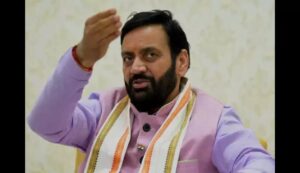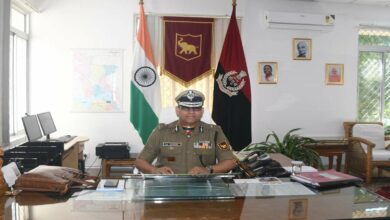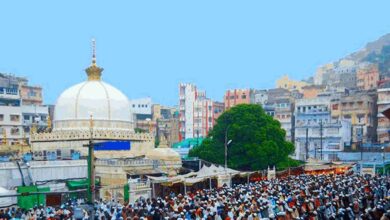Nayab Saini criticized the opposition’s protest on the ‘One Nation, One Election’ bill, said this
On Tuesday, Haryana Chief Minister Nayab Saini praised the ‘One Nation, One Election’ law, saying it will strike a balance between work pace and budget.
Additionally, he rejected objections by the opposition over the law, claiming that Congress only rejects excellent initiatives.

The chief minister of Haryana told reporters, “Repeated elections slow down growth and progress and are very expensive. A balance between work pace and budget will be established by One Nation One Election. This law ought to be approved. Congress’s primary goal is to block every positive proposal.
The Union Territories Laws (Amendment) Bill, 2024 and the Constitution (One Hundred and Twenty-Ninth Amendment) Bill, 2024 were officially tabled in the Lok Sabha earlier today after votes by its members.
The bill suggests holding simultaneous elections for the state legislatures and the Lok Sabha, or “One Nation, One Election.” For in-depth deliberations, the measure will be sent to a Joint Parliamentary Committee (JPC).
The outcome of the vote on the bill’s presentation in the House was declared by the Speaker of the Lok Sabha on Tuesday.
269 members voted in favor (Ayes) and 196 members voted against (Noes). The Constitution (129th Amendment) Bill, 2024 on ‘One Nation, One Election’ was formally introduced by Law Minister Arjun Ram Meghwal, who then agreed to forward the bill to a JPC in response to Union Home Minister Amit Shah’s remarks.
Speaking in the Lok Sabha, Amit Shah said: “PM Modi had stated that the One Nation, One Election Bill should be sent to the JPC for a thorough discussion when it was brought up for approval in the cabinet. The debate on the bill’s introduction may conclude if the Law Minister agrees to send it to JPC.
According to the day’s agenda, Meghwal also submitted a bill to alter the Jammu and Kashmir Reorganization Act of 2019, the Government of Union Territories Act of 1963, and the Government of National Capital Territory of Delhi Act of 1991. The purpose of these revisions is to bring the planned simultaneous elections into line with the assembly elections in Delhi, Jammu Kashmir, and Puducherry.
“Beyond the seventh schedule of the Constitution is the basic structure doctrine, which explains that there are certain features of the Constitution beyond the amending power of the House,” said Congress MP Manish Tewari, who opposed the motion. Federalism and our democracy’s structure are the key components. Therefore, the legislation introduced by the Minister of Law and Justice are beyond the House’s legislative purview and constitute a complete attack on the fundamental framework of the Constitution.
“I oppose the 129th Constitution Amendment Bill, 2024,” said DMK MP TR Baalu in opposition to the measure. It is anti-federal, as my commander, M.K. Stalin, has said. The electorate’s five-year right to choose the government cannot be restricted by holding elections at the same time.
In line with other members of the INDIA group, Samajwadi Party MP Dharmendra Yadav said, “I stand to reject the 129th Amendment Act of the Constitution. I don’t understand how, just two days ago, every effort was made to preserve the Constitution’s illustrious history.
The fundamental spirit and framework of the Constitution are being undermined by this Constitution Amendment Bill, which was introduced within two days. I agree with Manish Tewari, and I speak for my party and my leader, Akhilesh Yadav, when I say that the people who drafted our Constitution at the time were the most knowledgeable. No one is more knowledgeable, even in this House. I say this without hesitation.





